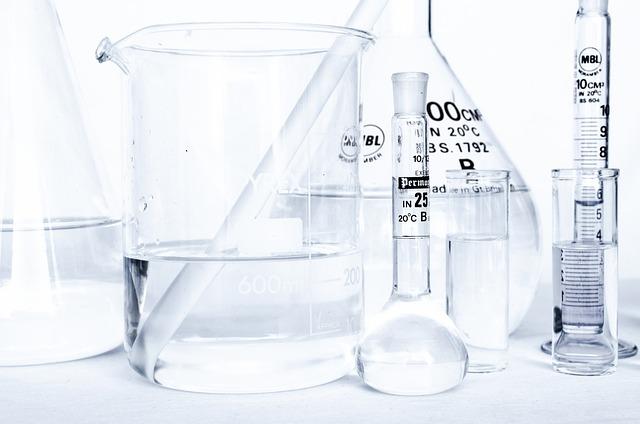- Introduction
- Revolutionizing Scientific Research
- Accelerating Discovery Through Data Analysis
- Designing Experiments and Simulations
- New Possibilities in Drug Discovery
- Conclusion
- FAQs
- References
Introduction
Artificial Intelligence (AI) is transforming various industries, but one of the most promising fields is scientific discovery. With growing amounts of data and increased complexity in scientific research, AI provides the tools and capacity to speed up discoveries that could take years, if not decades, to achieve through traditional methods.
In this article, we will explore how AI is revolutionizing scientific research by enabling scientists to analyze enormous datasets quickly, design smarter experiments, and even make advances in areas like drug discovery. Additionally, we’ll cover how AI-driven simulations are creating new possibilities in solving complex scientific problems.
Revolutionizing Scientific Research

(Image: Pixabay/@Pexels)
The integration of AI into scientific research opens up numerous opportunities for innovation. In the modern research landscape, data comes from various sources such as simulations, experiments, and observational studies. AI has the ability to find patterns or associations within these huge datasets faster than any human researcher ever could. This has fundamentally changed how science is done, leading to more efficient processes and new discoveries.
For instance, in fields like genomics, AI can rapidly sift through millions of gene sequences and predict which combinations may lead to certain characteristics or diseases. This level of analysis was previously unthinkable due to computational or time constraints. AI bridges that gap and accelerates the pace at which we can understand the underlying mechanics of nature.
Natural language processing (NLP), a subfield of AI, is also playing a key role. Many scientific documents need to be read and analyzed to formulate new theories. AI helps automate the reading and summarization of published studies, making it easier for researchers to stay up-to-date with the latest developments.
Moreover, AI's ability to improve prediction models allows for groundbreaking discoveries in fields such as astronomy, particle physics, and climate science.
Accelerating Discovery Through Data Analysis

(Image: Pixabay/@rohitdarbari)
A major hurdle in scientific research has always been the analysis of massive sets of data. Traditional methods handle small portions efficiently but tend to struggle with large, multidimensional data. This is where AI steps in and excels.
Machine learning algorithms can process vast datasets and unearth relationships between variables that might not be obvious even to trained professionals. In areas like materials science, AI is helping scientists identify properties of materials under different conditions, which helps in the discovery of new materials for electronics, construction, or medicine.
In neuroscience, for example, AI is speeding up our understanding of how the brain functions. Large, complex neural data gathered through imaging and experiments would take years for human researchers to interpret. AI-powered tools allow us to identify patterns and hierarchies in neural activity quicker, which could potentially lead to breakthroughs in treating mental illnesses or enhancing neurosurgery techniques.
Furthermore, AI dramatically reduces the trial-and-error phase in research. Once a model is trained on specific parameters, it can correctly predict outcomes for new scenarios, reducing the need for empirical testing.
Designing Experiments and Simulations

(Image: Pixabay/@PublicDomainPictures)
AI isn’t just useful for data analysis; it is also becoming an essential tool for designing and optimizing scientific experiments. Traditional experiment design follows a linear process: hypothesis, experiment, observation, and conclusion. AI, notably machine learning algorithms, optimizes this process by suggesting hypotheses that researchers might not have considered.
AI-driven simulations are replacing the need for expensive, time-consuming physical tests. For example, in theoretical physics and chemistry, AI-run simulations can model various scenarios and conditions in silico (computationally), thus eliminating long hours in the lab or in climate-controlled environments.
For instance, AI simulations are used extensively in the engineering of proteins and enzymes, in part because generating test samples in a wet lab is resource-heavy. Instead of producing every possible variant, AI narrows down the most likely candidates for success, saving both time and money.
Chemists use AI to simulate how molecules interact with each other under certain circumstances. Mathematical algorithms predict molecular interactions and their consequences, allowing for more targeted, efficient experimentation. The whole simulation process is optimized, from minimizing computation time to refining accuracy.
New Possibilities in Drug Discovery

(Image: Pixabay/@WaSZI)
One of the most exciting applications of AI in science is in drug discovery. Traditionally, drug development is a long and laborious process that can take upwards of a decade from the initial discovery phase to FDA approval. It is also incredibly costly. AI finds meaningful improvements here.
AI democratizes drug research by enabling the search for viable drug candidates across massive compound libraries. Pharmaceutical companies can now screen thousands of compounds and predict how they will react biologically much more effectively than through manual or high-throughput screening methods.
Let’s consider AlphaFold from DeepMind—a renowned AI system that predicts protein structures faster than any traditional method. Since proteins play a key role in cellular functions, understanding their structure directly influences the design of new drugs. Such models operate much faster than typical wet-lab experimentation, potentially accelerating the timeline for discovering life-saving treatments.
In addition, AI's ability to design clinical trials speeds up the phases of drug testing. Machine learning algorithms help optimize recruitment of subjects, predict potential side effects, and monitor responses during studies. These efficiencies can result in reduced costs, more effective treatments, and quicker approvals.
Conclusion
AI is undeniably transformative in the realm of scientific discovery. From revolutionizing how research is conducted to significantly cutting down the time it takes to develop new drugs, AI has proven to be a valuable ally for scientists. Whether through data-driven insights, experiment simulations, or accelerating drug development, the involvement of AI in scientific fields continues to push the boundaries of human knowledge and capabilities.
While challenges remain, particularly around ethical considerations and the limitations of AI decision-making, the future of scientific discovery is already seeing huge contributions made possible by AI technologies.
FAQs
How does AI help in scientific research?
AI helps in scientific research by analyzing large datasets, finding patterns, making predictions, and simulating experiments. It enhances efficiency and enables discoveries that were previously unimaginable.
What role does AI play in drug discovery?
AI plays a role in drug discovery by analyzing compound libraries, predicting molecular behavior, and optimizing clinical trials. This speeds up the development process, making it more cost-effective and efficient.
Can AI completely replace scientists in labs?
No, AI cannot replace scientists, but it serves as a powerful tool that aids human effort. While AI excels in data analysis and simulations, human intuition and creativity are still necessary for designing research and interpreting results.
Are there any risks in using AI for scientific discovery?
The risks include potential biases in datasets, over-reliance on machine-generated results, and ethical concerns, especially when it comes to sensitive areas like medical research. However, proper controls and oversight can mitigate these risks.
Which industries benefit the most from AI-driven scientific discovery?
While almost every scientific industry benefits from AI to some degree, fields like pharmaceuticals, biotechnology, agriculture, materials science, and environmental science are among the biggest beneficiaries of AI-driven innovations.

